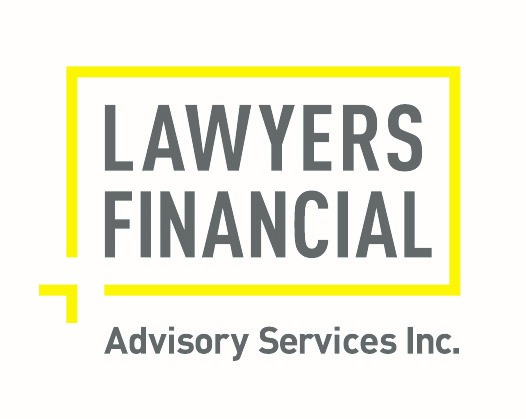
For calendar-year law firms, it’s tax season once again, and for law firm partners, there is a lot to know. Here are some of the most common issues encountered by law firm partners.
The tax filing obligations and some related filing timeline will vary depending on the structure of your law firm. In this article, we will discuss the tax issues associated with two common structures for Canadian law firms: Professional Corporation and Limited Liability Partnership (LLP).
PROFESSIONAL CORPORATIONS
There are three key tax issues to consider. You should evaluate whether this situation applies in your case.
1. Work-in-Progress (WIP)
WIP is essentially work that has been performed but has not yet been billed. Historically, the Income Tax Act allowed lawyers to exclude the value of their year-end work-in-progress (WIP). This changed in March 2017 and WIP is now subject to income tax in the year it arises (paragraph 10 (5) (a) of the Act).
To help law firms adapt to this change, a new rule allows for a five-year phase-in period. For the first year after March 21, 2017, law firms are required to include at least 20% of the value of their WIP in their income. In the second year, they need to include 40% and by the fifth year, they must include 100% of the WIP value.
Based on the transition rules, for calendar-year law firms, year 2019 will require at least 40% WIP inclusion.
2. Earnings in the Corporation
In a Professional Corporation, some earnings are allowed to remain inside the corporation, and will be taxed at a lower rate. This will enable the lawyers to invest a greater portion of the earnings. Those additional invested savings will benefit from compounding over time. However, lawyers should be mindful of the most recent tax rules that impact tax rates on retained corporate income when the amount of passive income inside the corporation is greater than $50,000.
3. Shareholder Loan
If you borrow money from your corporation at low or no interest, you are generally considered to have received a taxable benefit from the corporation equal to the CRA's current prescribed interest rate, minus any interest you actually pay during the year or within 30 days after the end of the year.
Unless the loan is for a limited number of qualified purposes, it will be included in your personal income for tax purposes in the year it was advanced, unless you repay it within one year after the end of the company's taxation year in which the loan was made. However, the lawyers should be cautious of series of shareholder loan transactions with the professional corporation. CRA may disallow these transactions as shareholder loan.
TIMING OF FILING OF THE CORPORATE RETURN
Corporate tax return filings are due 6 months after the year-end. For instance, for calendar-year law firms with December 31, 2019 as the year-end, the corporate tax return is due on or before June 30, 2020.
LIMITED LIABILITY PARTNERSHIPS (LLP)
Generally, a partnership is not required to pay income taxes on its income, nor is it required to file an income tax return. Instead, each partner in the partnership files an income tax return to report their share of the partnership's net income or loss. This requirement is the same whether the share of income was received in cash or as a credit to the partnership’s capital account.
Having said that, there are a few scenarios that may require the partnership to file form T5013 (known as the “Statement of Partnership Income”) with CRA:
- At the end of the partnership’s fiscal period, the partnership has an absolute value of revenues plus an absolute value of expenses of more than $2 million or has more than $5 million in assets.
- At any time during the partnership’s fiscal period:
- The partnership is a tiered partnership (has another partnership as a partner or is itself a partner in another partnership).
- The partnership has a corporation or a trust as a partner (this is a common situation within Canadian law firms leading to file T5013).
- The partnership invested in flow-through shares of a principal-business corporation that incurred Canadian resource expenses and renounced those expenses to the partnership.
- The minister of national revenue requests one in writing.
The partnership return is not an income tax return. However, the CRA has the authority to assess partnership returns and to issue a determination of income or loss for the partnership as a whole, the consequences of which will be binding on the partners even if they are not personally served with the notice. Accordingly, it’s critical to understand various inputs within your firm's partnership return, as they have implications on all partners.
TIMING OF FILING OF PARTNERSHIP RETURN (IF APPLICABLE):
The filing deadline for the partnership return may vary based on the structure of the partnership.
- For a partnership with all partners as individuals (i.e., no professional corporation), the filing deadline for T5013 is on March 31 after the calendar year in which the fiscal period of the partnership ended.
- For a partnership with all partners as corporations, the deadline is five months after the end of the partnership’s fiscal period.
- For all other cases, the deadline for submitting T5013 is March 31 or five months after the end of the partnership’s fiscal period, whichever date comes first.
Please note the failure to file the partnership information return may result in a significant penalty, and repeat offenders may be subjected to higher penalties by CRA.
In closing, it’s imperative to be organized and to ensure all the supporting documents and working papers are reconciled and tie out to the filings. This will ensure deadlines are not missed (i.e., no penalty or lack of peace of mind). Moreover, you need to be “audit ready.” CRA has the power to request for documentation and/or send out a questionnaire to understand your position on your tax filings. Providing timely and required responses is not optional – it is your obligation.
You might also like:
Year-end reporting for law firms
Finally. A pension plan for law firms
Written by Mayur Gadhia, CPA, CA, Founder of CloudAct CPA Professional Corporation.
The generic discussion in this article has been made available for informational and educational purposes only. Talk to a qualified accounting and tax professional to discuss the accounting/tax implication based on your specific circumstances. Accounting standards/Tax laws are complex and are subject to frequent changes. CloudAct CPA Professional Corporation cannot accept any liability for the accounting/tax consequences that may result from acting based on the information contained therein.


